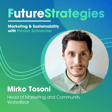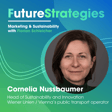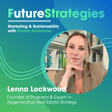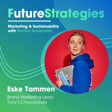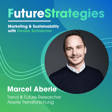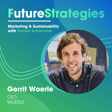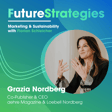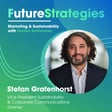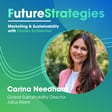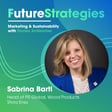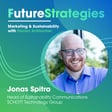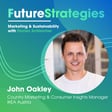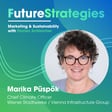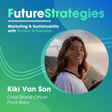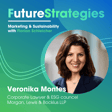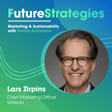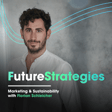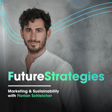
🌱 How do things end? - Joe Macleod about the role ends play in sustainability
Joe Macleod designs ends. He is the Founder of the worlds first customer ending business. Joe is a veteran of the product development industry with decades of experience across service, digital and product sectors. His Clients include, Volvo, Logitech, EY, Fairphone, Spotify, and Microsoft. He is a keynote speaker and author of two books on endings which we will talk about a little bit later.
If you want to read Joe's books he gifted us some 25% discount codes for his exciting and insightful books: "Ends!" book - code: EB55V // "Endineering" book - code: RN25W // And if you want to take his course - here is a 25% discount for that: 25offendscohort
About the FutureStrategies podcast and your host:
I’m Florian Schleicher, a marketing strategist. I help brands gain clarity, spark momentum, and turn strategy into something that actually moves people. In 2022, I started my marketing studio FUTURESTRATEGIES. to do exactly that. I currently work with corporate clients from 11 countries.
If you want more, check out my FutureStrategies newsletter – weekly inspiration on marketing, strategy and sustainability.
And if something’s blocking your brand from doing its best work, let’s talk.
